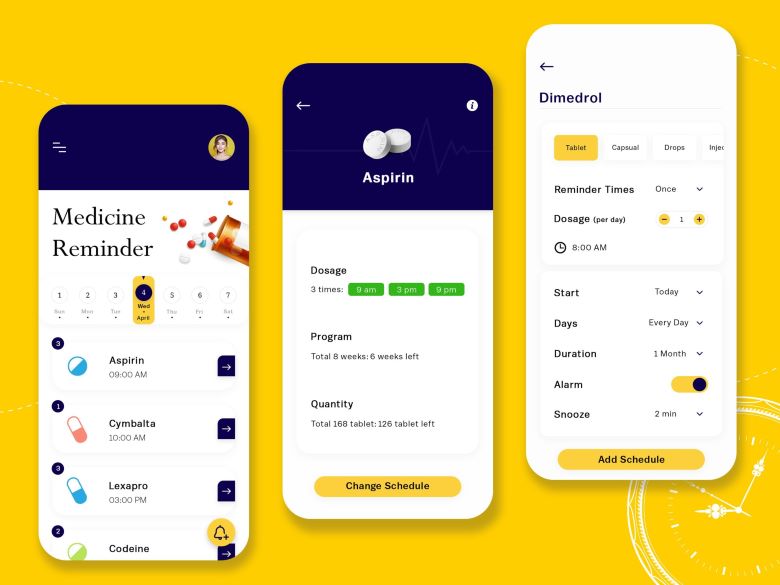
It might be difficult to manage one’s health in a fast-paced society. People on complicated pharmaceutical regimens or those with chronic diseases need to maintain track of their prescriptions, dosages, and timetables.
Thankfully, the development of medication management apps within the last several years has provided a digital alternative to improve and expedite the medication management process. This article will delve into the benefits and considerations of using a medication management app to help you determine if it is the right choice for you.
The Rise of Medication Management Apps
Apps for managing medications, like My Medadvisor, have grown in popularity as a practical and effective tool for people looking to take greater control of their health. These applications have a number of functions, such as prescription tracking and timely reminders that make medication management easier.
These applications are becoming essential to many people’s daily healthcare routines due to the rising popularity of smartphones and the increased focus on digital health.
Benefits of Medication Management Apps
With so many advantages that enhance general health, medication management applications have emerged as essential instruments in contemporary medicine. The following are the main benefits of using these applications in your daily routine for healthcare:
1. Enhanced Medication Adherence
The increase in medication adherence is one of the main advantages of utilizing a medication management app. In order to prevent missed doses of medication, these apps deliver reminders. Research has demonstrated that regular reminders improve adherence, particularly for people with long-term prescription needs, such as those with chronic diseases.
2. Centralized Medication Information
Applications for medication management offer a consolidated location to keep track of important prescription information. Communicating with pharmacists and healthcare providers is simpler when you have all this information in one location, including prescription names, dosages, refill dates, and any adverse effects.
This can be especially helpful when seeking advice from several healthcare specialists or in cases of medical emergencies.
3. Health Data Tracking
Along with their prescription schedules, users of many medication management apps can monitor a variety of health parameters. This can involve keeping track of vital signs, documenting symptoms, and observing any changes in general health. Pharmacists and their healthcare providers can both benefit from the capacity to link pharmaceutical use to health outcomes.
4. Refill Management
Running short of medication might jeopardize health and interfere with treatment efforts. Medication supply tracking and timely refill reminders are two common features seen in medication management apps. This proactive strategy guarantees a steady supply of essential pharmaceuticals and assists users in avoiding treatment pauses.
5. Healthcare Team Collaboration
Advanced apps for managing medications can facilitate easy connection with medical professionals. In order to improve communication and support well-informed decision-making, users can communicate directly with their healthcare team about their prescription history, adherence statistics, and health metrics.
Considerations Before Using a Medication Management App
Apps for medication management have grown in popularity as the field of digital health continues to grow. To make sure that a selected app fits your particular healthcare demands, you should carefully consider the following considerations before stepping foot in the realm of digital health solutions:
1. Privacy and Security
When utilizing an app to manage your medications, it is essential to keep in mind the importance of maintaining the confidentiality of your health information. Check to see if the application follows any applicable healthcare privacy rules and protects your sensitive data by implementing stringent security protocols.
2. User Interface and Ease of Use
The effectiveness of a medication management app is heavily dependent on a number of aspects, including how easily it can be used and how convenient it is. A user-friendly layout and set of features may encourage consistent engagement, and the user’s experience as a whole can be enhanced.
Before making a purchase, it is a good idea to evaluate an app’s functionality by downloading a demo version or reading reviews written by previous customers.
3. Integration with Healthcare Providers
Several different apps for medication management offer integration with healthcare professionals and electronic health records (EHRs). Check to see if the application can connect with your healthcare network so that information can be easily shared with your medical professionals.
This ensures that your medical staff is always aware of your overall health and your compliance with your drug regimen.
4. Customization Options
The medication schedules that people follow are often different from one another. It would be best to look for applications that allow you to customize how they handle your prescriptions, dosages, and schedules so that you may enter precise information.
When the application can be tailored to the user’s particular requirements for medical care, it serves the purpose of medication management much more effectively.
5. Cost and Accessibility
Even though there are a lot of free or inexpensive applications available for managing prescriptions, some of these apps may need you to pay a subscription or make in-app payments. Carry out a cost-benefit analysis in order to establish whether or not the advantages being provided are sufficient to make the investment worthwhile.
It would be best if you also thought about the level to which the program is obtainable on a range of computer operating systems. Also, the hardware platforms make the app’s integration into your routine as smooth as possible.
Consider Having Medication Management Apps
Medication management applications have become important resources in the digital health field, providing several advantages to people who want to take charge of their prescription regimens. These apps have the potential to greatly improve the whole healthcare experience, from increasing adherence to offering a centralized platform for health data.
But before selecting a medication management software, it is crucial to carefully evaluate aspects like privacy, usability, and integration with healthcare providers. These apps will probably become increasingly important in enabling people to take charge of their health as technology develops.
Using a medication management app ultimately comes down to personal tastes, requirements, and a readiness to accept technology as a partner in healthcare management.






